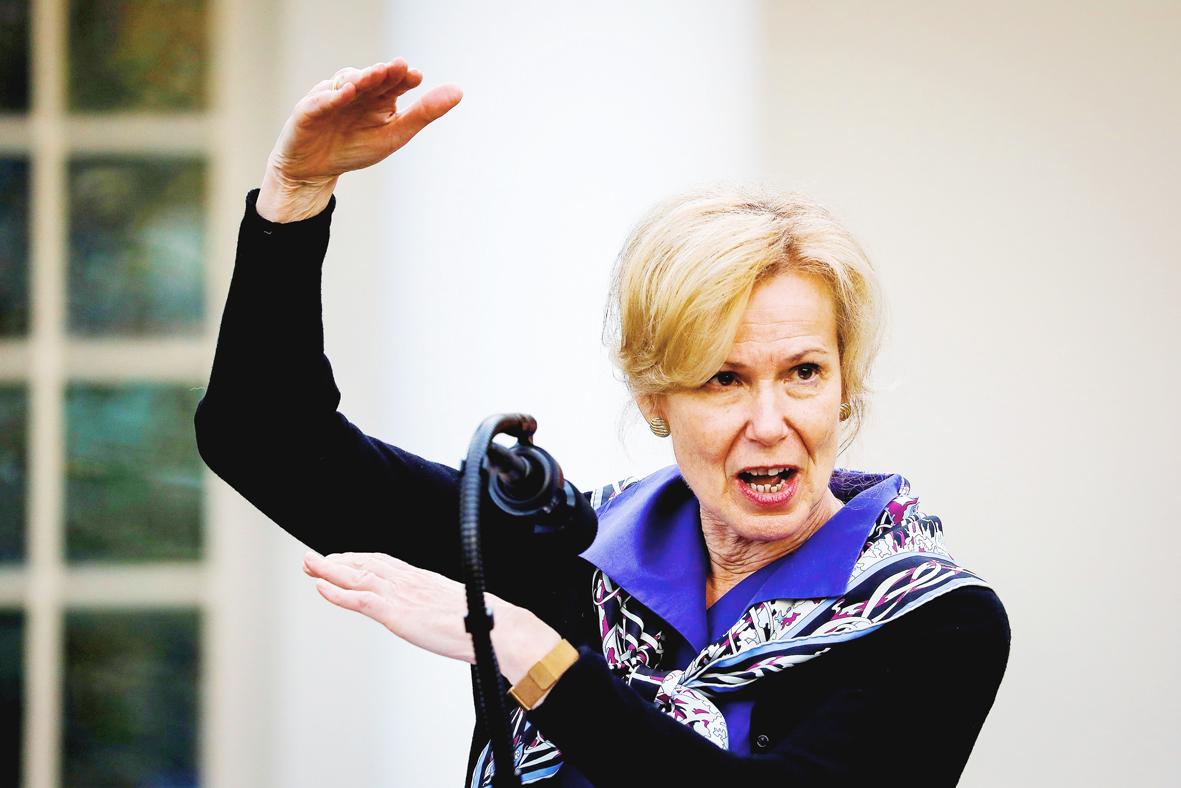Bracing the nation for a coronavirus death toll that could exceed 100,000 people, US President Donald Trump extended restrictive social distancing guidelines through next month, bowing to public health experts who presented him with even more dire projections for the expanding COVID-19 pandemic.
It was a stark shift in tone by the Republican president, who only days ago mused about the country reopening in a few weeks. From the Rose Garden, he said his Easter revival hopes had only been “aspirational.”
The initial 15-day period of social distancing urged by the federal government expired yesterday, and Trump had expressed interest in relaxing the national guidelines at least in parts of the country less afflicted by the pandemic.

Photo: Reuters
He instead decided to extend them through April 30, a tacit acknowledgment he had been too optimistic. Many states and local governments have stiffer controls in place on mobility and gatherings.
Trump’s impulse to reopen the country met a sober reality check on Sunday from US National Institute of Allergy and Infectious Diseases Director Anthony Fauci, who said the nation could experience more than 100,000 deaths and millions of infections from the pandemic.
That warning hardened a recognition in Washington that the struggle against the coronavirus would not be resolved quickly even as Trump expressed a longing for normalcy.
“I want our life back again,” the president told reporters.
Trump, who has largely avoided talk of potential death and infection rates, cited projection models that said potentially 2.2 million people or more could have died had social distancing measures not been put in place.
He added that the country would be doing well if it “can hold” the number of deaths “down to 100,000.” He said the best case for the country would be for the death rate to peak in about two weeks.
“It’s a horrible number,” Trump said, but added: “We all together have done a very good job.”
Brought forward by Trump at the outdoor briefing, Fauci said his projection of a potential 100,000 to 200,000 deaths is “entirely conceivable” if not enough is done to mitigate the crisis.
“It would not have been a good idea to pull back at a time when you really need to be pressing your foot on the pedal as opposed to on the brakes,” Fauci said on CNN yesterday, describing how he and others had convinced Trump to extend the restrictions.
“We showed him the data. He looked at the data. He got it right away,” Fauci said. “It was a pretty clear picture. Dr Debbie Birx [White House coronavirus response coordinator] and I went in to the Oval Office and leaned over the desk and said: ‘Here are the data. Take a look.’ He just shook his head and said: ‘I guess we got to do it.”’
“His first goal is to prevent suffering and death,” Fauci added.

The US government has signed defense cooperation agreements with Japan and the Philippines to boost the deterrence capabilities of countries in the first island chain, a report by the National Security Bureau (NSB) showed. The main countries on the first island chain include the two nations and Taiwan. The bureau is to present the report at a meeting of the legislature’s Foreign Affairs and National Defense Committee tomorrow. The US military has deployed Typhon missile systems to Japan’s Yamaguchi Prefecture and Zambales province in the Philippines during their joint military exercises. It has also installed NMESIS anti-ship systems in Japan’s Okinawa

‘WIN-WIN’: The Philippines, and central and eastern European countries are important potential drone cooperation partners, Minister of Foreign Affairs Lin Chia-lung said Minister of Foreign Affairs Lin Chia-lung (林佳龍) in an interview published yesterday confirmed that there are joint ventures between Taiwan and Poland in the drone industry. Lin made the remark in an exclusive interview with the Chinese-language Liberty Times (the Taipei Times’ sister paper). The government-backed Taiwan Excellence Drone International Business Opportunities Alliance and the Polish Chamber of Unmanned Systems on Wednesday last week signed a memorandum of understanding in Poland to develop a “non-China” supply chain for drones and work together on key technologies. Asked if Taiwan prioritized Poland among central and eastern European countries in drone collaboration, Lin

Renewed border fighting between Thailand and Cambodia showed no signs of abating yesterday, leaving hundreds of thousands of displaced people in both countries living in strained conditions as more flooded into temporary shelters. Reporters on the Thai side of the border heard sounds of outgoing, indirect fire yesterday. About 400,000 people have been evacuated from affected areas in Thailand and about 700 schools closed while fighting was ongoing in four border provinces, said Thai Rear Admiral Surasant Kongsiri, a spokesman for the military. Cambodia evacuated more than 127,000 villagers and closed hundreds of schools, the Thai Ministry of Defense said. Thailand’s military announced that

CABINET APPROVAL: People seeking assisted reproduction must be assessed to determine whether they would be adequate parents, the planned changes say Proposed amendments to the Assisted Reproduction Act (人工生殖法) advanced yesterday by the Executive Yuan would grant married lesbian couples and single women access to legal assisted reproductive services. The proposed revisions are “based on the fundamental principle of respecting women’s reproductive autonomy,” Cabinet spokesperson Michelle Lee (李慧芝) quoted Vice Premier Cheng Li-chiun (鄭麗君), who presided over a Cabinet meeting earlier yesterday, as saying at the briefing. The draft amendment would be submitted to the legislature for review. The Ministry of Health and Welfare, which proposed the amendments, said that experts on children’s rights, gender equality, law and medicine attended cross-disciplinary meetings, adding that